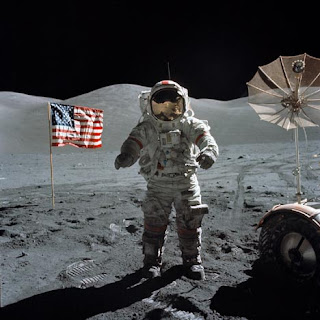
Anyone who knows me will not be surprised to hear that I am an armchair scientist of sorts. I don’t have any scientific training beyond high school and the stacks of “popular scientific non-fiction” (candidate for lamest sounding genre ever) in my bookshelf, which is why I consider myself more of a fan of science than a participant.
That said, I want to draw your attention to this excellent piece by Dennis Overbye (an excellent science writer) in last Tuesday’s New York Times:
http://www.nytimes.com/2009/01/27/science/27essa.html?_r=1
With his usual eloquence, Overbye explains how science, specifically President Obama’s inaugural promise to “restore science to its rightful place,” is a centerpiece of liberal democracy, freedom, and the American way.
I strongly encourage that you read Overbye’s excellent piece if you are even tangentially interested in the sciences. He puts the argument brilliantly, but I will make a few comments nonetheless.
Even though our culture ignores, confuses, or even scorns science, it is the single most important endeavor of humankind throughout history. Scientific progress has made possible every creature comfort that we enjoy, every technological advance that separates us from the rest of the species on earth. While dogma and ideology shatter and fragment mankind, the quest for knowledge and understanding binds us together.
As Americans, science is a particularly central element of our identity, whether certain social groups wish to acknowledge it or not. There is nothing more American than the scientific process, the objective, fair, and democratic system of deducing and testing truths. The explorers who colonized the country were driven by the same burning curiosity that lays thick in the halls of the Large Hadron Collider’s research facilities: the need to shine a light into the dark, unexplored corners of the universe.
Even our forefathers embraced these ideals, referring to the very tenants of our government and society as a great experiment in liberty and democracy.
For me, the pinnacle of such scientific endeavor is the work done by NASA. I defy you to find an American, or a human, who does not marvel at the images from the Hubble space telescope, shake their head in wonder as a man-made satellite crawls across the night sky, or shiver with excitement hearing Neil Armstrong broadcast the first words heard from another world.
And yet, despite the infinite potential and proven success of such programs, NASA’s budget in 2008 was a mere $17 billion, a number which pales in comparison to the $481 billion we spent waging war against our fellow man across our tiny, miraculous planet. I don’t know what Obama thinks “the rightful place” of science in our culture, and our budget, is. I know that the day when we spend more money learning and investigating than we do blowing each other to pieces is far off. I do know, however, that our species’ fate depends on us reaching that day. Here’s to hoping that the next four years will be a step in the right direction.
2 comments:
"...it [science] is the single most important endeavor of humankind throughout history."
Really? What about the development of community and basic social structure?
I too marvel over NASA photos. But are we marveling over NASA technology, or over the spectacular view of nature? Probably both.
And we should be careful before we become too worshipful of science. I am reminded of a wise South Park episode set thousands of years in the future, when groups of scientists are at war over different scientific beliefs ("Oh my science!" in lieu of "Oh my god!").
Science is responsible for some pretty evil things as well as good things. Think - atomic bomb, nerve gas (just learned about that in psychopharm, it's unbelievably nasty!). Progress for the sake of progress can be questionable, even when the intentions are good. There is a whole existential/philosophical literature on dying that focuses on the dehumanizing of death, for example.
Then again, maybe it depends on how you draw the line between science and technology. Though they are linked, they are separate.
Anyway, I enjoyed your post! Just throwing out a few incomplete thoughts that sprung to mind.
From, your sister.
The concept of 'science' brings to mind immediately the idea of 'scientific principle' which amazingly is a relatively recent technique. I say this becasue when 'discovered' the scientific principle thrust a few men into roles that they still hold as very, very prollific inventors.
Isn't that a bit like cheating??
Post a Comment